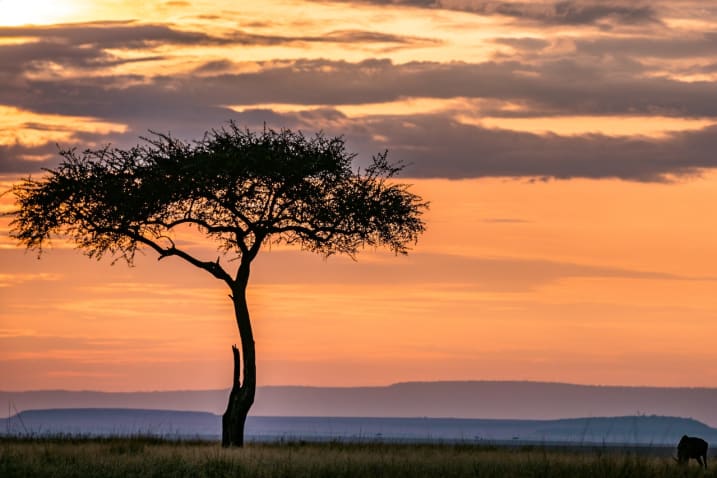What Is Limiting Diaspora Investments To Africa
Tulix Team

Investing isn’t a simple process. You can tell by “simply” trying to read through the Terms & Conditions pages of any investment product.
Many considerations need to be made by individuals before putting away a portion of their hard-earned money with the hope of earning a return over the course or at the end of the investment period. Faced with the seemingly daunting task of making the right decision with one’s savings, the vast majority of people do either of two things:
- Entrust their funds to a professional through investment structures; or
- Ask peers or family for advice and either invest alone or pool funds as a group.
A minority go the DIY route and gather information on their own, sift through options, learn about the markets and invest based on their own research.
The primary objective of investing is to maximize return against one’s risk threshold. Younger people tend to have higher risk appetites as they in theory have a longer time during which to earn back any money they lose. Older people are risk-averse for the opposite reason. For people living abroad who wish to invest some of their earnings, one of the first questions they must answer is whether the country they are in offers better return against the risk the investor is willing to accept compared to sending the funds to be invested in their home country.
After this, there are a number of additional considerations that any investor needs to make such as the duration of their intended investment, how much cash they have available to invest, liquidity of the assets they wish to invest in and so on. We shall discuss these in a future post. For the moment, we have noted other challenges that Africans living abroad face when looking to invest back home. The most common areas that we have seen so far are detailed below:
Insufficient Information
All investment decisions are formed on the basis of available information. A lack of information leads to either poor decisions, a lack of trust or both. For people living abroad, this is amplified by their distance from home and if not addressed adequately, this can severely limit how much of their available funds they are willing to invest back home.
Ease of Access/ Lengthy Processes
The fragmentation of financial markets in Africa due to different regulators for each sub-sector leads to a difficult customer experience. For an individual who has funds with one entity and wishes to deploy some of these funds into another arm of the same entity, the KYC process must be started over and in many cases, physical forms still need to be filled out. Not many companies or countries have adopted pure electronic account opening or access. This inefficiency frustrates individuals living abroad.
Shallow & Illiquid/ Underdeveloped Markets
For the most part, financial markets in sub-Saharan Africa (SSA) excluding South Africa have limited depth. In most SSA stock markets, there’s very limited variety when one wants to diversify and there is a lot of concentration risk where a very small number of companies make up a large portion of market capitalization. In some cases, there are just a handful of listed companies. This limits how tradeable a stock portfolio can be and thus, presents a risk to an investor.
Lack of Alternative Assets/ Limited Instruments
Many markets across SSA are still very traditional in terms of what’s available to an investor. For a person living in a more developed country, this poses a great challenge where they can only gain exposure either to stocks and bonds or physical assets. Alternative asset classes (e.g. those that give an investor exposure to a sector or an asset class without direct ownership) need to be prioritized as a means to develop these markets as this could increase investment from the diaspora.
Poor Macros
When investing into Africa from abroad two macroeconomic factors play a big role in the investing decision — currency and inflation. Over time, most African currencies have weakened against those of more developed countries. Similarly, inflation in Africa tends to be significantly higher. These two factors erode value for an investor who is earning in a foreign currency.
The point of investing is to earn a meaningful return in future. From the above list, the first two challenge areas feature prominently in our conversations with people living abroad. The good news is that these two issues can be easily and readily addressed through technology. Uninformed decision making in the investment process can be quite costly to an individual. Lengthy and inefficient processes can turn away an investor and lead them to look for simpler alternatives. One fintech startup that we intend to work with that is simplifying the investment process is Ndovu and we are excited to be pursuing opportunities to collaborate with them for the benefit of the African diaspora. The latter three issues on our list require the involvement of a lot of stakeholders (governments, regulators, financial institutions, etc.) and naturally will take longer to address though some markets are moving faster than others.

“Someone’s sitting in the shade today because someone planted a tree a long time ago.” — Warren Buffet
Hindsight is 20/20
In the end, one of the biggest lessons of last year was that it is critically important to put away funds for the future. The most certain thing about the future is its uncertainty. As such, it is important to mitigate future risks through present actions. The 2020 experience has changed people’s view of the world and will likely affect their choices around money in the coming years. The role of fintech in this respect is critical. As technology disrupts several industries to the benefit of the consumer, the investing space in Africa is also seeing positive progress in this regard as fintech startups continuously seek ways to enhance the customer experience.
Increased fund flows to Africa from its diaspora community could have the most meaningful impact in decades to come. However, the right channels need to be developed to make this process as easy, safe and painless as possible. Those that build the technology to facilitate this will be doing our continent and its global citizens a great service.